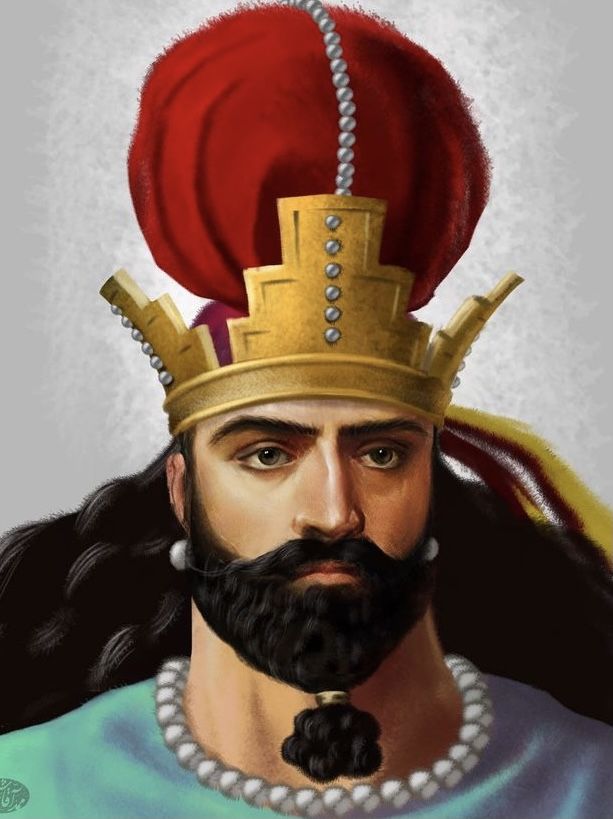
Reign of Shapur I
PersiaShapur I was the second Sasanian King of Kings of Iran. During his co-regency, he helped his father with the conquest and destruction of the Arab city of Hatra, whose fall was facilitated, according to Islamic tradition, by the actions of his future wife al-Nadirah. Shapur also consolidated and expanded the empire of Ardashir I, waged war against the Roman Empire , and seized its cities of Nisibis and Carrhae while he was advancing as far as Roman Syria. Although he was defeated at the Battle of Resaena in 243 by Roman emperor Gordian III (r. 238–244), he was the following year able to win the Battle of Misiche and force the new Roman Emperor Philip the Arab (r. 244–249) to sign a favorable peace treaty that was regarded by the Romans as "a most shameful treaty".
Shapur later took advantage of the political turmoil within the Roman Empire by undertaking a second expedition against it in 252/3–256, sacking the cities of Antioch and Dura-Europos. In 260, during his third campaign, he defeated and captured the Roman emperor, Valerian.
Shapur had intensive development plans. He ordered the construction of the first dam bridge in Iran and founded many cities, some settled in part by emigrants from the Roman territories, including Christians who could exercise their faith freely under Sassanid rule. Two cities, Bishapur and Nishapur, are named after him. He particularly favoured Manichaeism, protecting Mani (who dedicated one of his books, the Shabuhragan, to him) and sent many Manichaean missionaries abroad. He also befriended a Babylonian rabbi called Samuel.
